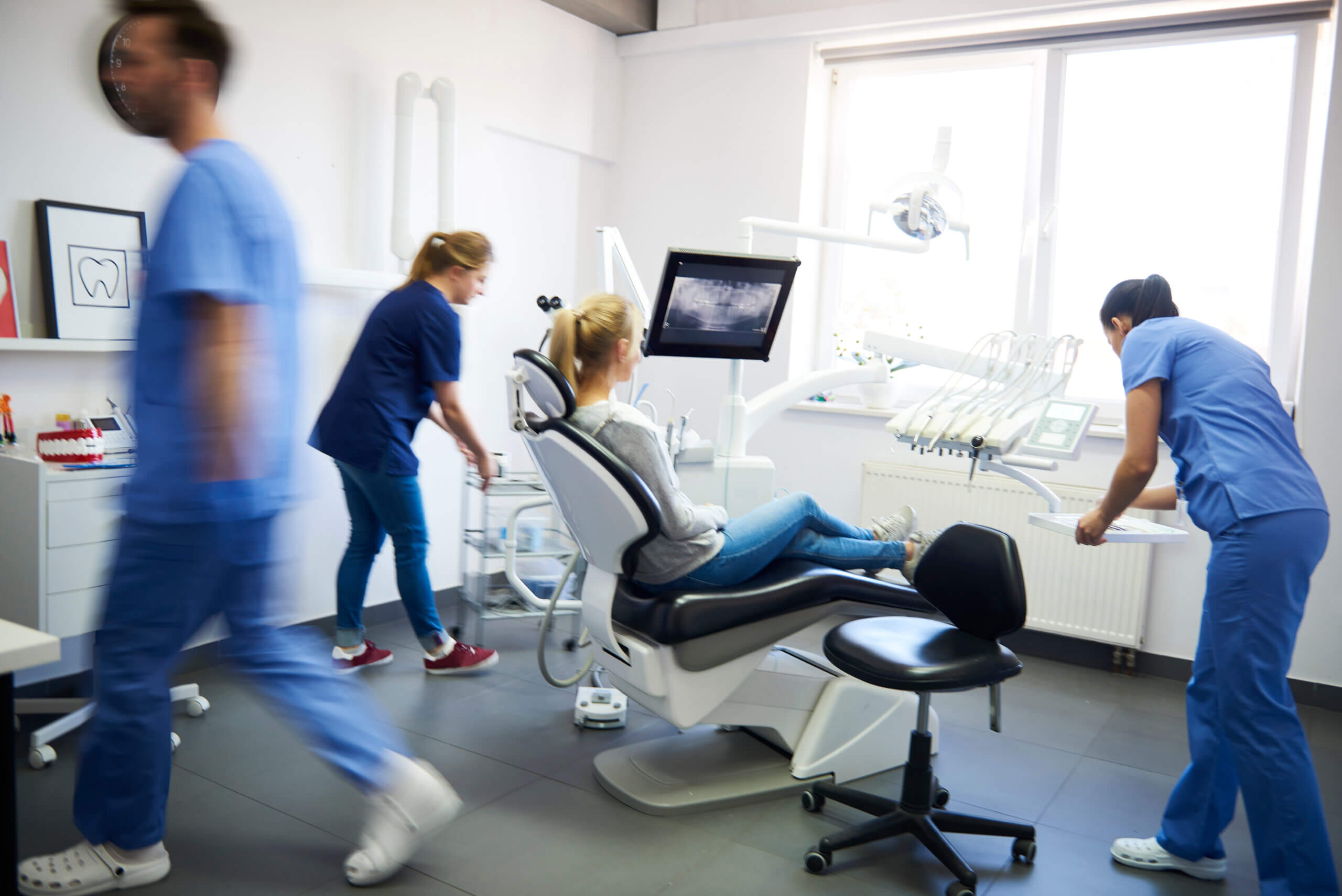
Dental Emergency: What to Do When the Unexpected Happens
Do you know what to do if faced with a dental emergency? Each year, there are approximately 2 million emergency room visits in the U.S. for dental pain, according to the American Dental Association (ADA).
Dental emergencies can range from a knocked-out tooth to a serious abscess. However, it can sometimes be difficult to determine whether a dental problem warrants emergency care or if the problem is less urgent. Learn more about dental emergencies and what to do when an unexpected incident occurs.
What Is a Dental Emergency?
A dental emergency can be described as any dental condition that is potentially life-threatening or requires immediate treatment to stop severe bleeding, infection, or pain. For example, a life-threatening dental emergency may consist of trauma to the facial bones that could put the patient’s airway at risk.
Some dental emergencies may not be life-threatening but may still require urgent care, such as post-extraction surgery pain, wisdom teeth pain, severe pain from decay, abscesses, tooth fractures, lost fillings, or orthodontic wires that come loose and cut into the gums or cheeks.
What Is Considered a Dental Emergency?
Not all dental pain is considered a dental emergency. Most dental emergencies consist of problems or injuries that could result in even worse problems if they are not immediately cared for. Some examples of common dental emergencies include:
- Knocked out tooth
- Broken or lost dental restoration
- Badly cracked tooth
- Serious soft tissue injury
- Dental abscess
- Partially dislodged tooth
- Severe toothache
How to Handle Common Dental Emergencies
Here’s a quick look at how to handle some of the most common dental emergencies:
1. Knocked Out Tooth
If your tooth has been knocked out, attempt to locate it. Holding it by the crown, carefully rinse it under water if it’s dirty but do not disturb any tissue fragments that may still be attached. If possible, put the tooth back in place but don’t force it into the socket. Alternatively, you can place the tooth into a small glass of milk and bring it with you to see the emergency dentist who may be able to save the tooth.
2. Broken or Lost Restoration
If you lose a dental filling, you may experience pain and sensitivity. To keep the discomfort at bay until you can see your dentist, use over-the-counter dental cement or stick a piece of sugarless gum into the tooth. If you have a crown that falls off, make an appointment as soon as possible to see your dentist and bring the crown with you. To diminish pain, you can apply clove oil to the tooth.
3. Badly Cracked Tooth
If your tooth has been badly cracked, attempt to save any broken pieces. If you’re experiencing bleeding, gently bite down on a piece of gauze until the bleeding stops. Keep swelling down and relieve any discomfort with a cold compress. See your Melbourne FL dentist as soon as possible.
4. Serious Soft Tissue Injury
In the mouth, the soft tissues include the gums, cheeks, and tongue. If you have a serious injury to these soft tissues, start by rinsing with a salt-water solution. Gently apply pressure to the bleeding site with a moistened piece of gauze for up to 20 minutes. If the bleeding doesn’t subside, contact your dentist.
5. Dental Abscess
A dental abscess is an infection that develops between the gums and teeth or around the tooth root. If left untreated, an abscess could damage the surrounding teeth and oral tissues. You’ll need to see your dentist as soon as possible but rinse with a mild salt-water solution throughout the day to cleanse the mouth.
6. Partially Dislodged Tooth
If your tooth is partially dislodged, you’ll need to see your dentist as soon as possible for treatment. You can relieve your discomfort with a cold compress and an over-the-counter pain reliever if needed.
7. Severe Toothache
First determine if something is causing your toothache, such as a piece of food lodged between your teeth. If the pain doesn’t subside, contact your dentist for an immediate appointment.
Contact Artistic Touch Dentistry Today
Are you dealing with a dental emergency? We can help. Contact our office at (321) 724-1400 to discuss your needs.

